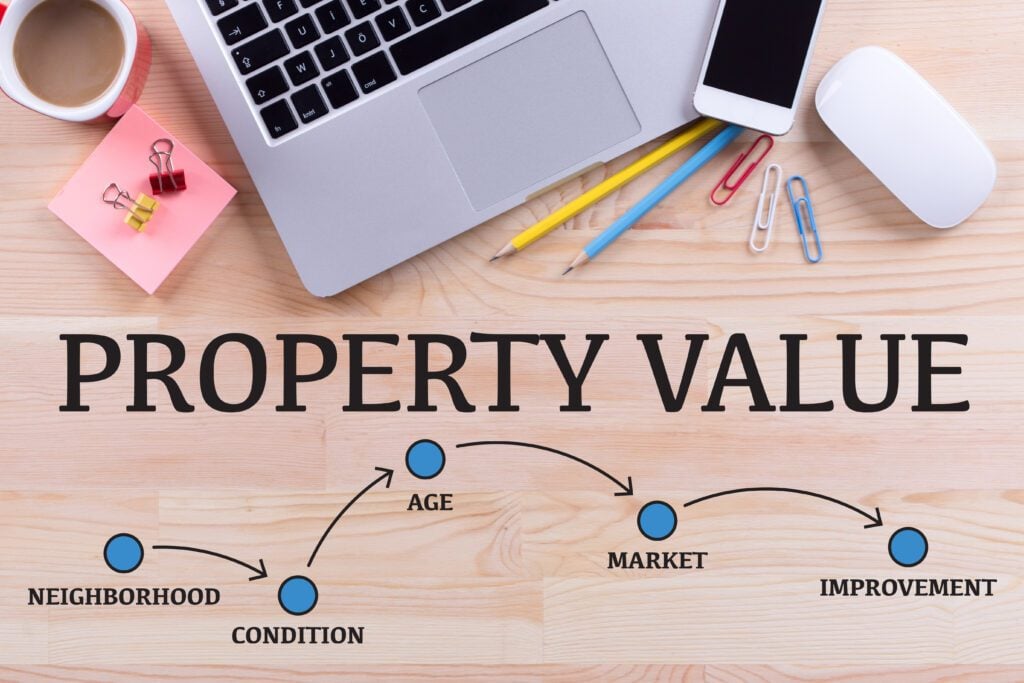Ask Brian is a weekly column by Real Estate Expert Brian Kline. If you have questions on real estate investing, DIY, home buying/selling, or other housing inquiries please email your questions to [email protected].
Question from Rowan in MS: Hi Brian, My family and I have lived in our home for 4 years. Unfortunately, home values in our neck of the woods have not gone up in value the way most other home values have over the past several years. Now, I have a fear that our home value might have gone down in value. Our house is on a residential street, but it is less than a block from a major road that goes into town. Interstate 55 runs next to the road going into town with a new exit that opened a couple of months ago connecting I-55 to the town road. It quickly became a busy intersection where the traffic light was installed at the freeway exit. Now, a few houses down from us is a very busy road with a lot of noise including emergency sirens. It’s bad but we don’t have any plans to move. I’m just wondering what it means if the value of our home goes down?
Answer: Hello Rowan. In the short term, it probably doesn’t mean much if the value of your home goes down. While it’s probably the biggest investment that you will ever make, the primary purpose is to be a shelter and home for your family. But that doesn’t mean there won’t be financial consequences to you over time. Whether your home goes up or down in value does affect the equity you have in your home. As long as you are just living in it, changes in equity won’t make much difference. Equity doesn’t directly add anything to your bank account or give you more money to spend each month.
However, equity does become important when there is a need to do any financing that involves the value of the house. If you want to sell it but can’t sell for more than the remaining balance on your mortgage, you will probably have a big problem.
You could have the same type of problem if you want to change the financing even if you will still live in the house. For instance, if you want to take out a home improvement loan, you may not have enough equity to qualify for a loan or you may only qualify for a much smaller loan than what you could have before the value went down. The same problem will come up if you have an adjustable mortgage or a balloon payment that you want to refinance in the future.
Rowan, figuring out the equity you have in your home is not complicated. To determine your home equity, you simply subtract what you owe on your home loan from what your home is worth. For example, if your home is worth or would sell for $200,000 and you still owe $150,000 on your mortgage, you have $50,000 in equity. As long as your current property value gives you positive equity, you should be fine. With positive equity, you could sell the house as long as you have enough equity to pay the real estate agent commission and closing costs, but you might not walk away with much money in your pocket. Generally, positive equity will also allow you to refinance an adjustable mortgage or balloon payment or take out a home improvement loan depending on variables like the loan-to-value ratio.
However, if the value of your home falls below the outstanding balance on the mortgage, you will have negative equity. You would have what is called an “underwater mortgage,” or an “upside-down loan.” Negative equity would be the case if your home is worth or would sell for $200,000 and you still owe $225,000 on your mortgage. You would be in a hole with -$25,000 in negative equity. In this situation, you would not be able to sell the house unless you paid the $25,000 difference in the mortgage loan plus the real estate agent commission and closing costs out of your own pocket. You would come away from the sale without putting any money into your pocket. Negative equity also means that lenders will not refinance a loan or make a home improvement loan.
Even with negative equity, the good thing is that as long as you make the mortgage payments you will still have a home to live in. Also, once the mortgage is paid down below the value of the home, you will again have positive equity. If you pay off the mortgage and live in your home forever, you may never even care that you had negative equity at one point in time.
There is something you want to do if the value has gone down, and you plan to live in the house for a while or make it your ‘forever’ home. Lower your property taxes. When the value of your home goes down, your property taxes should also go down. Your property taxes don’t have anything to do with your equity. Property taxes should only be based on the value of your home. If your home was worth $200,000 before the interstate off-ramp opened and your home is only worth $150,000 after the ramp opened, your property taxes should go down based on the lower value of your home. You might need to contact your tax accessor’s office to have them update the value of your home but doing that could save a few hundred dollars in property taxes every year.
What did I miss in explaining what can happen when property values go down? Please leave your comments.
Our weekly Ask Brian column welcomes questions from readers of all experience levels with residential real estate. Please email your questions or inquiries to [email protected].
